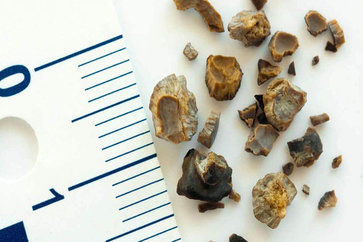How Do I Know If My Menstrual Cycle Is Normal?
Paying close attention to your menstrual cycle and period can help you spot possible symptoms of a health problem, including infertility symptoms. But how can you know if something is wrong if you’re not sure what’s normal?

Many women aren’t sure if they have a normal period or not. Speaking to friends isn’t always beneficial as the range of normal can be wide. Moreover, even though period-talk is common with your friends! Even the closest buddies may not reveal how many days they bleed or discuss mid-cycle spotting.
Something to keep in mind as your reviews what’s normal and what’s not is that when your period just begins after puberty, it’s normal for your cycle to be a little off as a teenager. The same goes for the years just before you reach menopause.
Furthermore, keep in mind that if your periods suddenly change, even if those changes fall within the norm, you should speak to your doctor. While the below list talks about the normal for the general population, you should also pay attention to your personal “normal.”
How Many Days of Bleeding Are Normal?
The average woman bleeds for three to five days, but it’s normal to bleed for as few as two days or as many as seven days.
It can also be normal to bleed above seven days if it’s just sighting. Anyhow if you’re happening heavy movement beyond seven days, it is not thought over to be regular.
How Much Blood Is Normal?
Even though it can look like a lot more, normally women bleed just two tablespoons worth of blood during their period. It is considered to be normal if it is two to three times a day.
It’s not considered normal to need to change your pad in the middle of the night or to pass large clots (golf ball size or larger). Using small, tissue-like clots on the first day or two of your period can be normal.
If experiencing a heavier flow during the first few days of your cycle is also considered normal, but it should not be so much that you need to change your tampon or pad more often than every hour or every two hours.
If you are in a condition that finds yourself changing pads every hour for two to three hours in a row, call your doctor right away.
How Many Days Between Periods Are Normal?
The average menstrual cycle length that would be from the first day of your period until the next period begins, is said to be 28 days. There’s a misconception that anything shorter or longer than 28 days is not normal, but this isn’t true. A cycle as short as 21 days or as long as 35 days is considered normal.
How Many Variations Between Periods Is Normal?
Minor variation in the length of your cycles is normal. For example, if one month your cycle is 2days, and another cycle is 30 days, this would be within the normal range.
If there is a large variation, it is not considered to be normal. For example, if some cycles were 21days long, and others 33days long, that would be considered an abnormal variation.
If you experience this type of variation, you are experiencing irregular periods. Sometimes, due to stress or illness, your cycle may be deferred.
Having a one-off cycle is nothing to be worried about, though if you go longer than 60days without a period, and you’re not pregnant, you should speak to your doctor.
Is Brown Spotting Between Periods Normal?
Some women experience light brown spotting during ovulation, it can be experienced more or less in the middle of the cycle. It is also called “implantation spotting,” it may occur about seven days after ovulation, about the time the embryo would root itself in the uterine lining.
Not all women experience this, but it’s considered to be normal. If you experience heavier bleeding in the middle periods, or the spotting seems to occur throughout your cycle that would not be considered normal.
What’s a Normal Menstrual Period?
Normal period symptoms include…
- Emotional sensitivity or mood swings
- Feeling irritable
- Food cravings
- Light cramping (especially the day before your period and the first couple of days of your period)
- Mild headaches
- Increased acne
- Trouble sleeping
- Breast tenderness
- Bloating
While slight mood swings are normal, serious depression or insane states are not normal period signs. Tearing up at a hallmark commercial is normal. Crying on and off all day for no apparent reason is not normal.
Mild headaches are normal, but you must consult your doctor if you experience migraines before your period.
Food cravings are very common, but craving non-food items, like rocks or sand, is not normal.
How Much Cramping Is Normal?
Mild cramping, particularly the day before and the day of your period, is normal. Cramping that is so bad that you consider calling off work is not normal.
Cramping that occurs at times apart from your period is also not normal. Severe pelvic cramps may be symptoms of adenomyosis, pelvic inflammatory disease, or another medical problem that needs attention.
What Is Considered a Normal Luteal Phase?
The secretory phase is the time between ovulation and the first day of your cycle. If you track ovulation using a body basal temperature chart, or with ovulation predictor kits, you may know how long your secretory phase is.
The normal luteal phase can be from 12 to 14 days, but anything between 10 and 16 days is considered normal. If you chart your cycles and notice a luteal phase of fewer than 10 days, refer this to your doctor.
There is some controversy on whether or not a luteal phase that is on the short side, say 10 or 11 days, is a problem or not. If you’re having difficulty getting pregnant, you should mention this to your doctor.
Is Vaginal Odor Ever Normal?
We’re often told that vaginal odor is a sign of infection, but in fact, some odor is normal. During your period, you may notice a blood-like scent, which makes sense. A mild, musk-like scent at any time during your cycle can be normal.
A pungent scent or strong fishy smell is not normal and may indicate an infection. Speak to your doctor, especially if you experience itching, fever, or other symptoms.
While you may feel ashamed talking about vaginal odors, it’s important to talk to your doctor and not just try of covering up the scent with vaginal deodorants. Some vaginal infections can obstruct getting pregnant, and many, if not all, vaginal deodorants can interfere with fertile cervical mucus (which you need to get pregnant).
Sources:
- https://my.clevelandclinic.org/health/articles/10132-normal-menstruation
- https://www.ncbi.nlm.nih.gov/books/NBK279054/
- https://www.womenshealth.gov/menstrual-cycle
























When it comes to the menstrual cycle, there is no shortage of myths. There are so many, in fact, that writing articles such as this one could easily become a full time job!